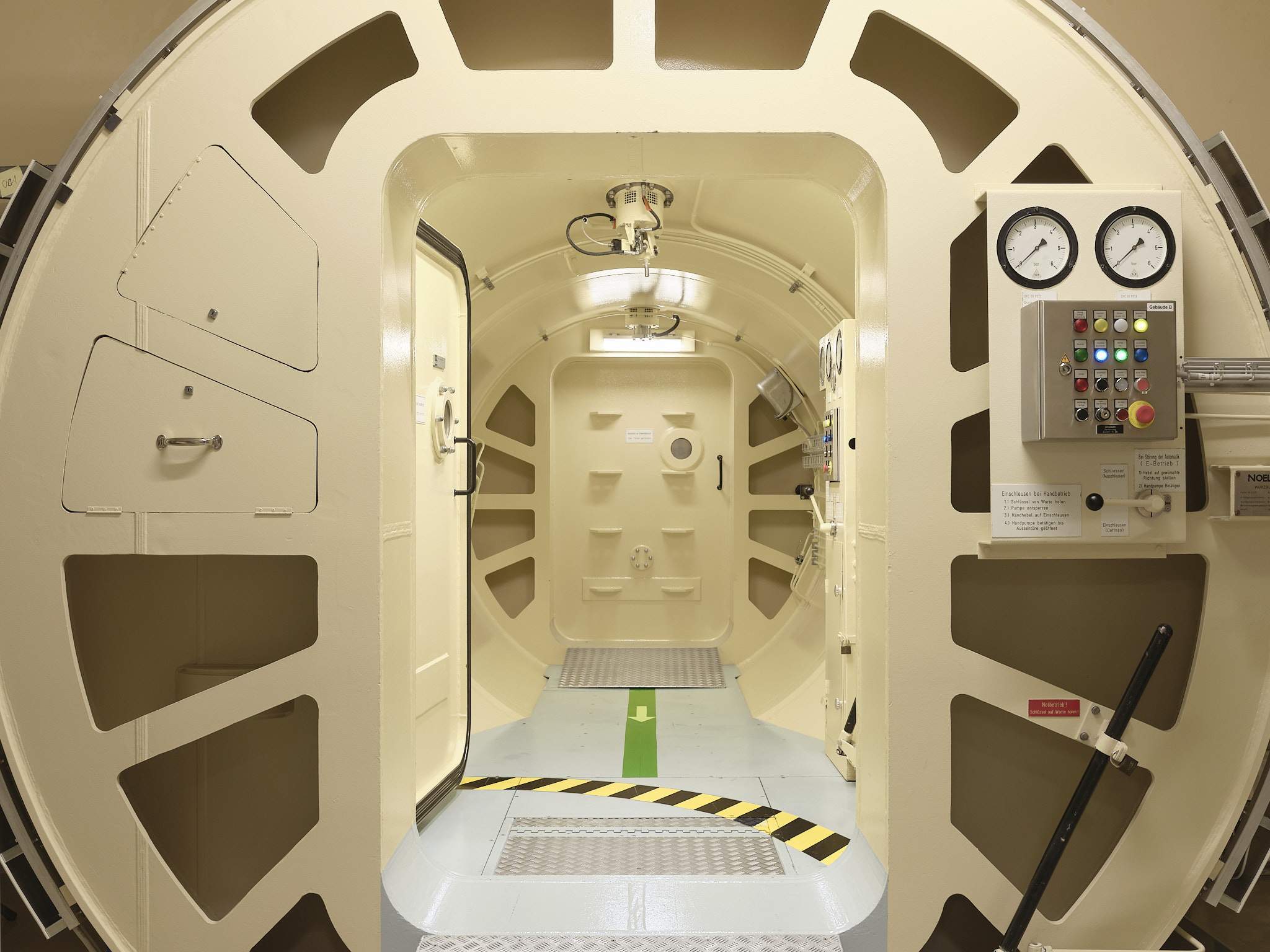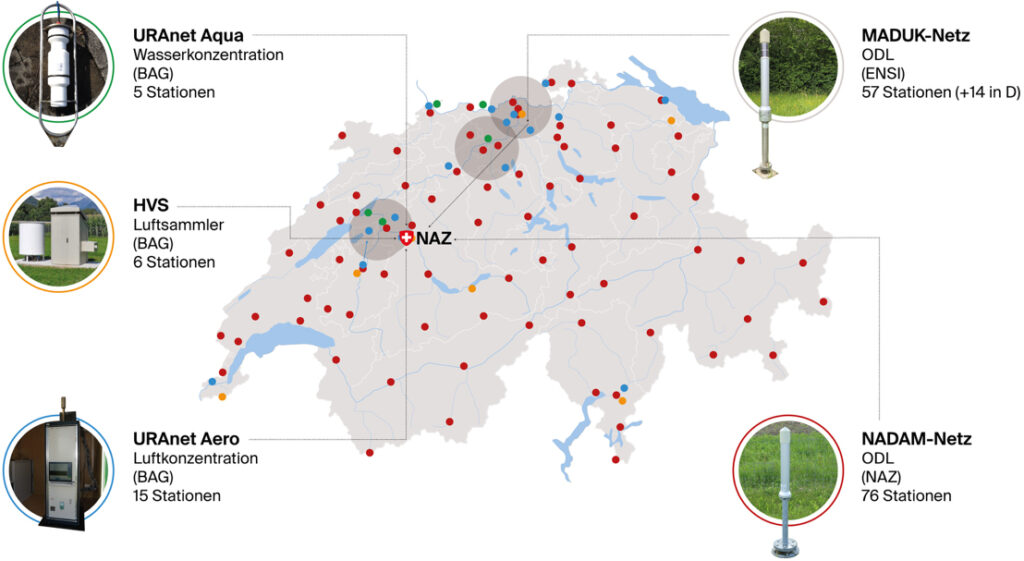
The operators of Swiss nuclear power plants are responsible for their safety. All nuclear power plants have structural and technical barriers to ensure protection against radiation.
The Swiss Federal Nuclear Safety Inspectorate (ENSI) monitors the plants and ensures that all legally stipulated safety requirements are met.
During the operation of a nuclear power plant, small quantities of radioactive substances are produced from the activation of construction materials. The radioactive releases of a nuclear power plant to the environment are strictly regulated. There are limits for the local dose rate for external control of the exposure of the population. The nuclear power plants measure these independently. In addition, the Federal Office of Public Health (FOPH), ENSI and the National Emergency Operations Center (NEOC) independently monitor releases via water or air using measuring stations. The data is continuously published on the Internet.
The nuclear power plants are designed in such a way that they must be able to cope with even an extremely severe earthquake or other extreme events that could occur once in 10,000 years. All Swiss nuclear power plants have provided ENSI with this proof. If the nuclear power plants are unable to provide this proof, this will result in temporary decommissioning by ENSI. Operation can only be resumed once the plant has been retrofitted accordingly.

In Switzerland, various measuring stations are operated by the FOPH, ENSI and the NEOC.
© Federal Office for Civil Protection
In the event of an incident involving the release of radioactive substances, the authorities order the intake of potassium iodide tablets. This prevents radioactive iodine, which is absorbed via the respiratory tract, from accumulating in the thyroid gland. However, potassium iodide tablets do not offer any general protection against radiation that affects the body from outside. Information on the subject of "iodine tablets" can be found on the following website: www.kaliumiodid.ch